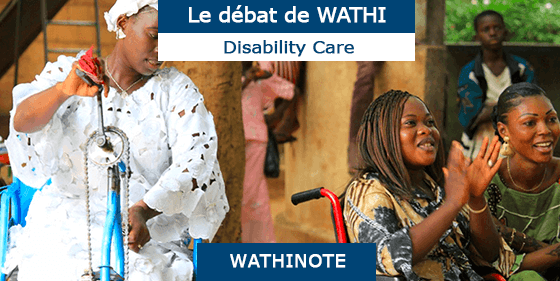

Author: , (CDC)
Affiliated organization: Content source: National Center on Birth Defects and Developmental Disabilities, Centers for Disease Control and Prevention
Type of publication: Article
Date of publication: September 2019
What is Disability Inclusion?
Including people with disabilities in everyday activities and encouraging them to have roles similar to their peers who do not have a disability is disability inclusion. This involves more than simply encouraging people; it requires making sure that adequate policies and practices are in effect in a community or organization.
Inclusion should lead to increased participation in socially expected life roles and activities such as being a student, worker, friend, community member, patient, spouse, partner, or parent. Socially expected activities may also include engaging in social activities, using public resources such as transportation and libraries, moving about within communities, receiving adequate health care, having relationships, and enjoying other day-to-day activities.
Disability Inclusion and the Health of People with Disabilities
Disability inclusion allows for people with disabilities to take advantage of the benefits of the same health promotion and prevention activities experienced by people who do not have a disability. Examples of these activities include:
- Education and counselling programs that promote physical activity, improve nutrition or reduce the use of tobacco, alcohol or drugs; and
- Blood pressure and cholesterol assessment during annual health exams, and screening for illnesses such as cancer, diabetes, and heart disease.
Including people with disabilities in these activities begins with identifying and eliminating barriers to their participation. Disability affects approximate 61 million, or nearly 1 in 4 (26%) people in the United States living in communities. Disability affects more than one billion people worldwide.
Inclusion should lead to increased participation in socially expected life roles and activities such as being a student, worker, friend, community member, patient, spouse, partner, or parent
People with disabilities experience significant disadvantages when it comes to health such as:
- Adults with disabilities are three times more likely to have heart disease, stroke, diabetes, or cancer than adults without disabilities;
- Adults with disabilities are more likely than adults without disabilities to be current smokers; and
- Women with disabilities are less likely than women without disabilities to have received a breast cancer X-ray test (mammogram) during the past 2 years.
Although disability is associated with health conditions (such as arthritis, mental, or emotional conditions) or events (such as injuries), the functioning, health, independence, and engagement in society of people with disabilities can vary depending on several factors:
- Severity of the underlying impairment
- Social, political, and cultural influences and expectations
- Aspects of natural and built surroundings
- Availability of assistive technology and devices
- Family and community support and engagement
Adults with disabilities are three times more likely to have heart disease, stroke, diabetes, or cancer than adults without disabilities
Disability inclusion means understanding the relationship between the way people function and how they participate in society, and making sure everybody has the same opportunities to participate in every aspect of life to the best of their abilities and desires.
Les Wathinotes sont soit des résumés de publications sélectionnées par WATHI, conformes aux résumés originaux, soit des versions modifiées des résumés originaux, soit des extraits choisis par WATHI compte tenu de leur pertinence par rapport au thème du Débat. Lorsque les publications et leurs résumés ne sont disponibles qu’en français ou en anglais, WATHI se charge de la traduction des extraits choisis dans l’autre langue. Toutes les Wathinotes renvoient aux publications originales et intégrales qui ne sont pas hébergées par le site de WATHI, et sont destinées à promouvoir la lecture de ces documents, fruit du travail de recherche d’universitaires et d’experts.
The Wathinotes are either original abstracts of publications selected by WATHI, modified original summaries or publication quotes selected for their relevance for the theme of the Debate. When publications and abstracts are only available either in French or in English, the translation is done by WATHI. All the Wathinotes link to the original and integral publications that are not hosted on the WATHI website. WATHI participates to the promotion of these documents that have been written by university professors and experts.
